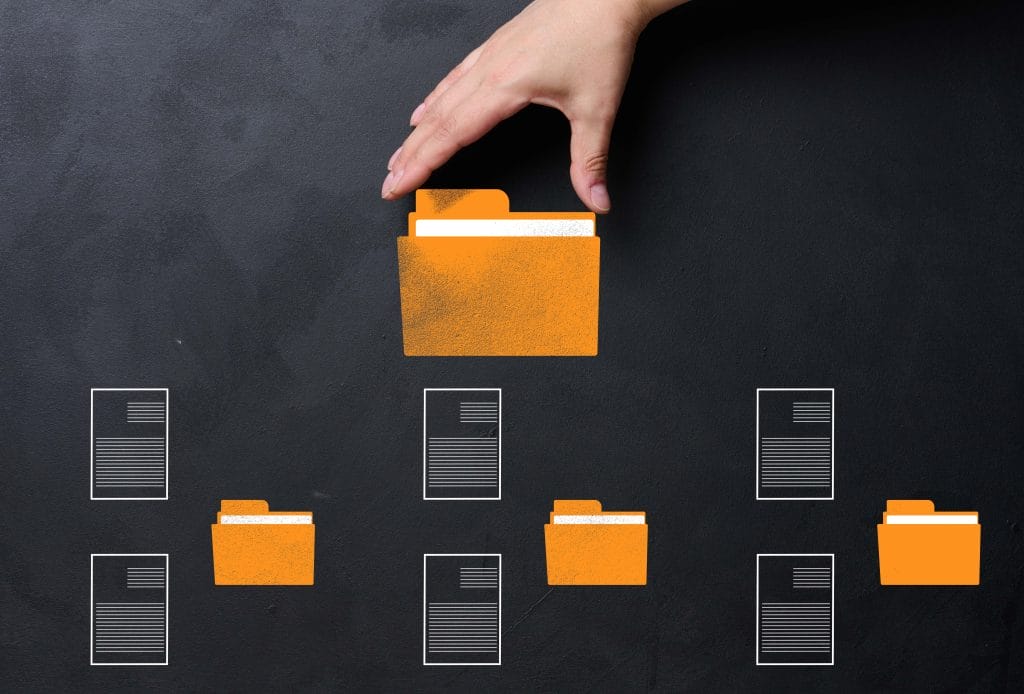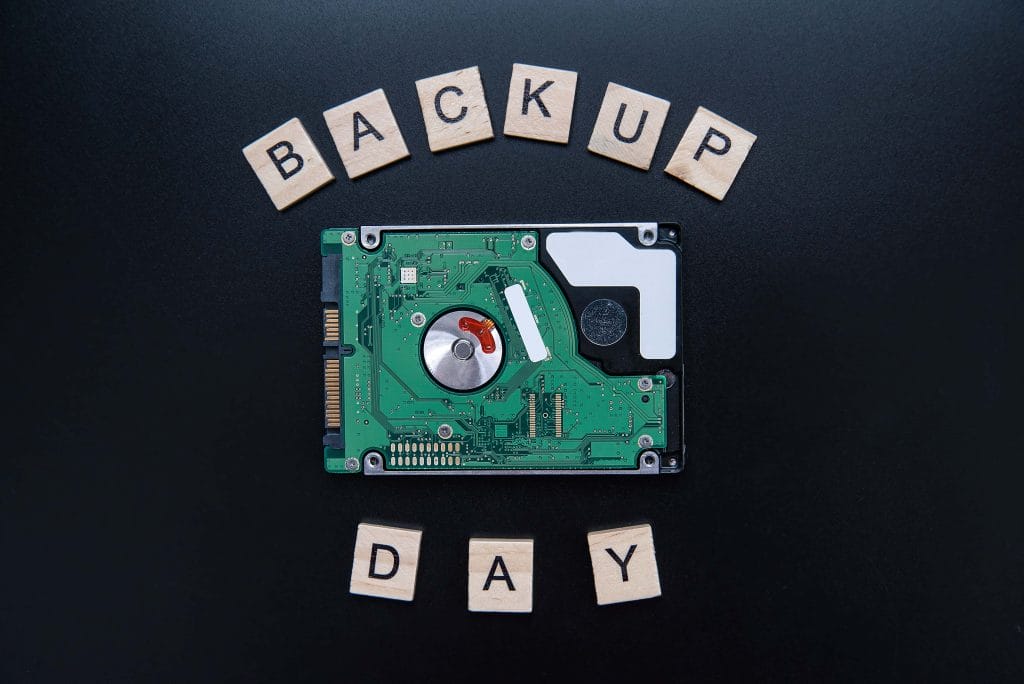
Immutable backups are unchangeable data copies designed to protect against ransomware and unauthorized alterations. Utilizing object locks, they guarantee data integrity and security by implementing a Write-Once-Read-Many (WORM) mechanism. Unlike traditional backups, immutable backups create a fortress around your data, preventing any modifications. They are vital for reliable data recovery during disasters and help organizations meet compliance standards. Although they come with higher initial costs, their role in minimizing the financial and operational impact of cyberattacks makes them an essential addition to your data protection strategy. Explore further to understand their full benefits and implementation details.
Understanding Immutable Backups
As we said earlier, Immutable backups are unchangeable copies of your data that protect against ransomware and unauthorized alterations. These backup solutions guarantee your data remains intact and secure by preventing any modifications once the backup is created.
In the domain of data protection, immutable backups serve as a crucial defense mechanism by creating immutable data that can’t be tampered with or deleted.
One of the primary features of immutable backups is their ability to safeguard against ransomware attacks. By implementing object locks that make the data WORM-protected (write once, read many), you guarantee that your backup data can’t be altered, providing a robust barrier against malicious activities.
This immutable nature is essential for maintaining data integrity and security, as it prevents unauthorized changes or deletions, which are common tactics used by cybercriminals. Additionally, incorporating a robust cyber security service further enhances protection, ensuring that your data remains secure and untampered.
Moreover, immutable backups are an integral component of robust backup solutions designed to facilitate quick data recovery in the event of a disaster or cyber incident. By maintaining an unmodifiable copy of your critical information, you can restore your systems to their original state swiftly and efficiently.
This makes immutable backups a cornerstone of modern data protection strategies.
Importance of Immutable Backups
Understanding the importance of immutable backups is essential for safeguarding your data against ransomware, which strikes every few seconds. These backups guarantee data integrity by preventing any tampering, providing a secure copy that’s always reliable for recovery.
With traditional backups vulnerable to cyber threats, immutable backups offer a vital defense mechanism, protecting your data from both internal and external risks.
Defense Against Ransomware
In the fight against ransomware, securing your data with unchangeable backups is essential for ensuring swift and reliable recovery. A ransomware attack can strike at any moment, encrypting your data and leaving you at the mercy of cybercriminals.
Implementing an immutable backup solution offers a robust defense by creating backup data that can’t be altered or deleted. Unlike traditional backup systems, which are vulnerable to encryption and manipulation, immutable backups provide an unchangeable record of your data, ensuring its integrity and availability when you need it most.
When ransomware infiltrates your system, the immediate focus is on regaining access to your data. With immutable backups, you can quickly restore your operations without the prolonged downtime associated with traditional backups.
These unmodifiable copies act as a safeguard, preventing cybercriminals from encrypting or deleting your data backup. This resilience not only minimizes recovery time but also reduces the financial and operational impacts of a ransomware attack.
Ensuring Data Integrity
Guaranteeing data integrity is paramount for any organization aiming to protect its valuable information from unauthorized changes or deletions. By maintaining immutable backups, you can ensure that your data remains unaltered and secure over time, providing a robust defense against potential threats.
Immutable storage, which involves using technologies that create read-only data copies, is essential in developing an effective immutable backup strategy. This approach ensures that once data is written, it can’t be modified or deleted, thereby preserving its integrity.
Immutable object storage, a specific form of immutable backup technology, further strengthens data security by storing data in units called objects, which are inherently unchangeable. This method is particularly effective in preventing data tampering or loss due to cyber threats like ransomware.
By incorporating immutable storage solutions into your data protection framework, you not only enhance data integrity but also ensure compliance with stringent data regulations.
Moreover, maintaining immutable backups facilitates quick and reliable data recovery in the event of disasters or cyber incidents, minimizing downtime and potential data loss. Organizations that adopt immutable backup strategies achieve a higher level of data security and operational resilience, ensuring peace of mind and long-term data protection.
Immutable Vs. Traditional Backups
When comparing immutable and traditional backups, you’ll notice significant differences in data modification prevention, as immutable backups guarantee data remains unchangeable, whereas traditional backups can be altered.
Immutable backups offer a robust defense against ransomware, maintaining data integrity and providing quicker recovery times due to their fixed nature.
However, it’s crucial to take into account the costs and maintenance requirements, as immutable backups might demand higher initial investments and ongoing management compared to their traditional counterparts.
Data Modification Prevention
Unlike traditional backups, immutable backups guarantee that your data can’t be modified or deleted, providing robust protection against cyber threats and accidental errors. With immutable backups, data modification prevention is achieved using advanced techniques such as object locks. These locks ensure that once data is written, it becomes WORM-protected (Write Once, Read Many), meaning no one can alter or delete it. This feature is critical for maintaining data integrity, as it ensures that backup copies remain exactly as they were when first stored.
In contrast, traditional backups are susceptible to various forms of tampering, whether intentional or accidental. This susceptibility can lead to significant risks, including data corruption or loss. By implementing immutable backups, you create a fortress around your data, making unauthorized changes impossible and preserving the original state of your backups indefinitely. This level of data modification prevention is invaluable for businesses looking to safeguard their critical information.
Maintaining data integrity with immutable backups not only protects against cyber threats but also ensures reliable recovery in the event of a disaster. This method provides peace of mind that your data remains secure and unaltered, ready to be restored whenever necessary.
Ransomware Defense Strategy
Building on the concept of data integrity provided by immutable backups, let’s examine how they serve as a robust defense against ransomware compared to traditional backups. In today’s cybersecurity landscape, a strong ransomware defense strategy is essential.
Traditional backups, while valuable, are vulnerable to ransomware attacks because they can be encrypted or deleted by malicious software. This vulnerability compromises your ability to recover data and resume normal operations swiftly.
Immutable backups, on the other hand, are designed to protect data integrity by creating unchangeable copies of your data. These immutable backup solutions guarantee that once the data is written, it can’t be altered or deleted, even by ransomware.
This immutability provides a significant defense against ransomware, ensuring that your backup data remains intact and available for recovery.
Backup Data Integrity
Ensuring data integrity is vital, and immutable backups offer a significant advantage over traditional backups by preventing any alterations or deletions.
With immutable backups, you create a secure copy of data that remains fixed and unmodifiable, providing robust protection against threats such as cyber attacks and data manipulation. This unchangeable nature ensures the integrity of your data, safeguarding it from encryption, deletion, and other malicious activities.
In contrast, traditional backups are more vulnerable to ransomware attacks and unauthorized alterations. Cybercriminals often target these mutable backups, exploiting their weaknesses to encrypt or delete valuable data, effectively holding it ransom.
Immutable backups, however, mitigate these risks by making the data unchangeable once stored, thereby offering enhanced security and peace of mind.
Implementing immutable backups as part of your data protection strategy is essential for maintaining data integrity. They provide an unalterable, secure copy of data that can be relied upon in the event of a cyber threat or disaster.
Recovery Speed Comparison
Immutable backups offer significantly faster recovery speeds compared to traditional backups, thanks to their unchangeable nature. When you need to restore data quickly, immutable backups excel because they don’t require the extensive verification processes that traditional backups do. Traditional backups often need to be scrutinized for integrity and consistency, which can slow down the data recovery process.
Because immutable backups are unalterable, you can rely on the fact that the data is exactly as it was when it was first backed up. This dependability means you can achieve quicker recovery, minimizing downtime and ensuring business continuity. In the event of cyber attacks or disasters, the unchangeable state of immutable backups ensures that your critical information is restored promptly without the risk of tampering or data loss.
In contrast, traditional backups might involve cumbersome steps to verify and reassemble data, which impacts recovery speed. With immutable backups, the process is streamlined, making data recovery both swift and efficient.
Ultimately, the faster recovery speed provided by immutable backups translates to less disruption and a more reliable recovery solution for any organization facing potential data threats.
Cost and Maintenance
When comparing costs, you might notice that immutable backups often come with higher initial expenses due to the need for specialized technology and storage solutions. These investments are vital for guaranteeing data integrity and protection against cyber threats. The upfront cost can be a deterrent, but it’s important to weigh this against the potential long-term savings.
Maintenance of immutable backups involves regular testing, monitoring, and updates to ensure continuous data integrity and security. This proactive approach can help prevent data loss and reduce the need for extensive recovery efforts. While the maintenance might seem intensive, it generally results in lower ongoing costs compared to traditional backups.
On the other hand, traditional backups may appear more budget-friendly initially. However, they often incur higher maintenance expenses over time due to the need for frequent data integrity checks, updates, and potential recovery from ransomware or other cyber threats. These recurring costs can add up and surpass the initial savings.
In essence, while traditional backups might seem cost-effective at first glance, the robust protection and long-term savings offered by immutable backups can outweigh the initial cost difference, making them a more reliable and secure option for data protection.
Benefits of Immutable Backups

By implementing immutable backups, you’ll enhance your data security, making it nearly impossible for cyber threats like ransomware to alter or destroy your information.
These backups also guarantee reliable data recovery, allowing quick restoration in the event of an incident.
This combination of security and reliability provides a robust safeguard for your critical data, minimizing downtime and maintaining data integrity.
Enhanced Data Security
With immutable backups, you can guarantee that your data remains secure against tampering, deletion, or unauthorized changes. This approach greatly enhances data security by ensuring that once data is written, it can’t be altered or deleted. As a result, immutable backups provide strong protection against ransomware attacks, preserving the integrity and recoverability of your important information.
Additionally, immutable backups play an important role in maintaining compliance with data regulations and industry standards. They help organizations meet stringent requirements for data retention and security, ensuring that all stored data remains intact and unmodified over time. This compliance is particularly crucial in sectors that handle sensitive information, such as finance and healthcare, where data breaches can have severe consequences.
Ransomware Protection
Immutable backups offer robust protection against ransomware attacks by guaranteeing your data can’t be altered or deleted. When cybercriminals launch ransomware attacks, they typically encrypt or manipulate your data, demanding a ransom for its release. Immutable backups counteract this by providing a secure, unchangeable copy of your data, which remains immune to such malicious activities. This level of ransomware protection is essential for maintaining data security and integrity, as it assures that your critical information remains untouched by unauthorized hands.
By implementing immutable backups, you effectively shield your data from potential encryption or manipulation, ensuring that you retain control over your information. This proactive measure not only enhances your data security but also significantly reduces the likelihood of paying ransoms, thereby saving costs and preserving data integrity. The unalterable nature of these backups means that even if a ransomware attack occurs, your data remains safe and recoverable.
In essence, immutable backups serve as a formidable defense mechanism against ransomware, providing a reliable safeguard that secures your data’s security and integrity. By integrating these backups into your data protection strategy, you can mitigate the risks posed by cybercriminals and enhance your overall cybersecurity posture.
Reliable Data Recovery
Reliable data recovery hinges on having unchangeable copies of your data, guaranteeing you can swiftly restore operations after any incident. Immutable backups provide this critical feature by offering unmodifiable copies of your data, safeguarding against data tampering, ransomware attacks, and accidental deletions. When your data is immune to unauthorized changes, you can be confident in its integrity and availability during recovery efforts.
These immutable backups are essential for meeting data regulations and compliance standards, which often require secure and reliable data storage solutions. By implementing immutable backups, you not only reduce the risk of data loss but also enhance your overall data security posture. This method ensures that, even in the face of cyber threats or human errors, your recovery process remains efficient and dependable.
Here’s a quick overview of the benefits:
| Benefit | Description | Impact |
| Protection Against Tampering | Data remains unchanged and secure from unauthorized alterations. | Guarantees data integrity and reliability. |
| Defense Against Ransomware | Encrypted, unchangeable backups resist ransomware attacks. | Facilitates quick and effective recovery. |
| Compliance with Regulations | Meets legal and industry standards for data protection. | Helps avoid regulatory penalties and enhances trust. |
Implementing Immutable Backups
To implement immutable backups effectively, you need to start by enabling data encryption, ensuring that all backup data remains secure from unauthorized access.
Next, setting up thorough backup policies that define retention periods and frequency of backups will help maintain data integrity.
Enabling Data Encryption
When you implement immutable backups, enabling data encryption becomes an important step to guarantee your sensitive information stays protected from unauthorized access. Data encryption transforms your data into a secure format, which can only be deciphered with the correct encryption keys. These keys are essential, as they prevent unauthorized parties from accessing and reading your data. By encrypting your immutable backups, you add a strong layer of security that helps prevent data breaches and cyber attacks.
Encryption serves as a primary defense mechanism, ensuring that even if an attacker gains access to your backup storage, the information remains unreadable without the appropriate keys. This step not only safeguards your data but also aligns with various compliance standards, which often mandate the protection of sensitive information through encryption. Adhering to these standards helps you avoid legal penalties and maintains the integrity of your data security practices.
Incorporating data encryption into your immutable backup strategy means your data remains confidential and secure during both storage and transfer, ensuring that it’s protected at all times. This holistic approach fortifies your overall data protection plan, providing peace of mind in an increasingly digital world.
Configuring Backup Policies
After confirming that your data is encrypted, the next step involves configuring backup policies that enforce the immutability of your backups. By setting immutable backup policies, you safeguard your data from alterations, guaranteeing data immutability across all backup instances.
First, determine the backup retention periods. This dictates how long your backups will remain stored and unaltered. Longer retention periods might be necessary depending on your organizational needs and compliance with data regulations.
Next, implement access controls to restrict who can modify or delete backups. By limiting access, you reduce the risk of unauthorized changes and enhance data security. Make sure that only authorized personnel have the ability to manage these backups.
Lastly, consider data regulations that apply to your industry. Compliance with these regulations not only ensures legal adherence but also promotes higher standards of data protection and integrity.
Here’s a quick reference table to summarize these key points:
| Configuration Aspect | Description |
| Backup Retention Periods | Defines how long backups are stored |
| Access Controls | Restricts modification and deletion access |
| Data Regulations | Ensures compliance with legal standards |
Technology and Infrastructure of Backup Immutability

When considering the technology and infrastructure behind immutable backups, you’ll need to focus on data encryption standards, storage mechanisms employed, and access control measures.
Utilizing advanced encryption methods guarantees your data remains secure and inaccessible to unauthorized parties. Additionally, selecting robust storage solutions and implementing strict access controls are essential for maintaining the integrity and security of your immutable backups.
Data Encryption Standards
In the domain of immutable backups, data encryption standards like AES and TLS are essential to guarantee that your data remains secure and unalterable. AES, or Advanced Encryption Standard, employs symmetric encryption to protect your data, making it one of the most robust methods available. Utilizing AES ensures that even if unauthorized individuals access your backup files, they can’t decipher the data without the proper encryption keys.
TLS, or Transport Layer Security, plays a critical role in securing data as it travels across networks. By encrypting the data during transmission, TLS helps protect against interception and tampering, ensuring that your data remains intact from its source to its destination.
Encryption keys are pivotal in this process; they encrypt and decrypt your data, maintaining its confidentiality and integrity. Proper management and storage of these keys are imperative, as they’re the gatekeepers to your encrypted information.
Compliance regulations, such as GDPR, mandate the use of encryption to safeguard sensitive data against unauthorized access, making adherence to these standards not just a best practice but often a legal requirement. Employing robust data encryption standards ensures your immutable backups are both secure and compliant.
Storage Mechanisms Employed
By guaranteeing robust encryption, you create a solid foundation for the immutable storage mechanisms that safeguard your data.
Immutable backup storage employs various advanced techniques to ensure your data remains unchangeable and secure over time. One vital technology is the write-once-read-many (WORM) mechanism, which allows data to be written only once and read multiple times, preventing any modifications after the initial write.
Implementing these strategies within both on-premises and cloud environments guarantees that your immutable backup data remains consistent and protected against unauthorized changes. Object locks play a significant role in this process, providing additional layers of security by preventing any alterations to the stored data.
Immutable cloud storage solutions offer the flexibility and scalability needed for modern data protection, while on-premises options can be tailored to meet specific organizational requirements. Technologies like Rubrik’s immutable filesystems further enhance data integrity, ensuring that your backups are tamper-proof and reliable.
Access Control Measures
To guarantee the security of immutable backups, access control measures restrict unauthorized access using a blend of advanced technologies and robust infrastructure. These measures include encryption, which safeguards that data is unreadable to unauthorized users.
By implementing role-based access control (RBAC), you can assign permissions based on user roles, ensuring that only those who need access to specific data can obtain it. This approach is further strengthened by adhering to the principle of least privilege access, granting users the minimum level of access necessary for their roles.
Moreover, the infrastructure supporting these measures includes firewalls, VPNs, and secure networks, all of which shield data from external threats. Multi-factor authentication (MFA) adds another layer of security by requiring multiple forms of verification before granting access.
Regular security audits and continuous monitoring are essential to guarantee compliance with data protection regulations and to identify potential vulnerabilities. These audits help maintain the integrity of your access control measures, safeguarding that your immutable backups remain secure against unauthorized access and potential security breaches.
Best Practices for Data protection Strategies

To guarantee robust data protection, you should establish a regular backup schedule, use diversified storage locations, and implement strong encryption and access controls.
These practices enhance the reliability and security of your backup strategy, making it easier to recover from data loss incidents.
Regular Backup Scheduling
Regularly scheduling backups is essential for ensuring your data is consistently protected and up-to-date. This practice is important for data loss prevention, as it captures regular changes and updates, reducing the risk of losing critical information due to system failures or cyberattacks.
By adhering to a structured backup scheduling routine, you enhance data protection and support efficient data recovery, ensuring that recent copies of your data are always available when needed.
To optimize your backup strategy, consider these best practices:
- Frequency Determination: Assess how often your data changes and schedule backups accordingly. For critical systems, daily backups might be necessary, whereas less critical data might only need weekly backups.
- Automated Scheduling: Implement automated backup solutions to ensure consistency and reduce the risk of human error. Automation ensures that backups occur at the specified times without requiring manual intervention.
- Verification and Testing: Regularly verify and test your backups to ensure they’re complete and functional. This step is important for data recovery, as it confirms that your backup process is reliable and your data can be restored without issues.
Diversified Storage Locations
Storing backups in diverse locations guarantees your data remains protected even if one site experiences a disaster. Utilizing diversified storage locations is a key element of effective backup strategies. By spreading your backups across cloud storage, off-site servers, and physical storage, you greatly reduce the risk of data loss due to localized disasters, whether natural or man-made.
A robust data protection strategy involves adhering to the 3-2-1-1-0 backup strategy: keep three copies of your data, store them on two different types of media, with one copy off-site, one immutable copy, and zero backup recovery errors. By implementing this approach, you make sure that your data remains accessible and recoverable under various circumstances.
Incorporating cloud storage into your backup plan not only provides flexibility and scalability but also enhances your disaster recovery capabilities. Additionally, storing backup copies in multiple geographical locations builds resilience, ensuring that an incident in one area doesn’t compromise your entire data set.
Encryption and Access Controls
While diversified storage locations enhance data resilience, encryption and access controls serve as the first line of defense in safeguarding your backups. Implementing encryption guarantees that your data remains secure both during transfer and while stored. By encrypting your backups, you protect the data from being accessed or tampered with by unauthorized parties, thereby maintaining data security and integrity.
Access controls play an essential role in making sure that only authorized personnel can interact with the backup data. By setting strict access controls, you minimize the risk of accidental or malicious alterations to your immutable backup. This isn’t only vital for data security but also for compliance with various data regulations and privacy laws.
To effectively incorporate encryption and access controls in your backup strategy, consider the following best practices:
- Regular Monitoring: Frequently monitor and update your encryption methods and access control settings to stay ahead of potential security threats.
- Role-Based Access: Implement role-based access controls to ensure that only individuals with the necessary permissions can access or alter backup data.
- Compliance Checks: Regularly review your backup strategies to ensure they meet the latest compliance standards and data protection regulations.
Protecting Data With Immutable Backups
When you use immutable backups, your data is stored in a manner that prevents any modifications or deletions, ensuring its integrity. This method acts as a robust defense against ransomware, as attackers can’t alter or encrypt the backed-up data.
Additionally, immutable backups provide a dependable solution for data recovery, allowing you to restore data quickly and effectively after an incident.
Unchangeable Data Storage
How can you guarantee your data remains untouchable and secure from threats? Implementing immutable backups is an important step. Immutable backups ensure that your data storage is unchangeable and protected from alterations or deletions.
By creating a secure backup, you preserve a copy of data that remains immutable, safeguarding its integrity.
The concept of immutable data is straightforward yet powerful. Once data is written, it can’t be modified or deleted, ensuring that your data remains intact and reliable. This approach is essential for protecting against unauthorized changes or tampering, which can compromise the integrity of your information.
Implementing immutable backups can greatly reduce the risk of data loss, providing a secure and reliable copy of data that you can depend on for quick recovery in the event of disasters or cyberattacks.
Benefits of Immutable Backups:
- Preserve Data Integrity: Immutable backups ensure data remains unaltered.
- Enhance Security: Protect against unauthorized changes and tampering.
- Facilitate Quick Recovery: Reliable data restoration in case of incidents.
Ransomware Defense Mechanism
Immutable backups play a vital role in defense mechanism against ransomware by preventing unauthorized alterations or deletions of your data. When you implement immutable backups, you effectively create copies of your data that can’t be modified or erased, thereby guaranteeing that your information remains intact even in the face of cyberattacks. This layer of protection is essential for maintaining data integrity and availability during an attack.
By utilizing immutable backups, you can protect data from being compromised by ransomware, which often seeks to encrypt or delete files to extort payment. With these unchangeable backups in place, attackers can’t alter or destroy your critical data, rendering their ransom demands ineffective. This ransomware defense mechanism not only shields your data but also fortifies your overall cybersecurity strategy.
Moreover, the presence of immutable backups helps maintain business continuity, as it allows you to quickly access unaltered data following a cyberattack. This protection ensures that your operations can continue without significant disruption, minimizing potential financial and reputational damage.
Implementing immutable backups is hence an essential step in safeguarding your data and ensuring long-term resilience against cyber threats.
Reliable Data Recovery
By leveraging immutable backups, you can guarantee that your data remains unaltered and recoverable, providing a dependable solution for data recovery in the face of cyber threats. Immutable backups ensure that your backup copies are protected from modification, deletion, or encryption, thereby safeguarding data integrity. This unchangeable nature is critical in the event of cyber attacks, such as ransomware, where malicious actors aim to compromise your data.
Using immutable backups, you can confidently protect backup copies, ensuring they remain intact and accessible. This capability is essential for reliable data recovery, allowing for quick restoration of critical information with minimal downtime. Organizations depend on these backups to prevent data loss, maintain compliance, and ensure business continuity, even when faced with severe cyber threats or disasters. By integrating immutable backups into your data protection strategy, you can enhance your disaster recovery plans and strengthen your overall data security framework.
- Protection Against Cyber Attacks: Immutable backups prevent ransomware and other threats from altering your data.
- Maintained Data Integrity: Ensures your data remains unchanged and accurate over time.
- Business Continuity: Facilitates rapid recovery, minimizing operational downtime and financial loss.
Frequently Asked Questions
What Is an Example of an Immutable Backup?
You’re looking for an example of an immutable backup? Veeam’s Backup & Replication is a great one. It guarantees your data can’t be altered or deleted, providing robust protection against ransomware and other threats.
What Is the Difference Between Mutable and Immutable Backups?
Mutable backups can be changed or deleted, making them vulnerable to cyber threats. Immutable backups, on the other hand, can’t be altered, providing stronger protection against ransomware and ensuring data integrity and security.
What Is the Meaning of Immutable Backup?
You’re wondering about the meaning of an immutable backup. It’s a backup that can’t be changed or deleted, ensuring data integrity and security. This type of backup is crucial for protecting against cyber threats and accidental data loss.
What Is the Difference Between Immutable Backup and Traditional Backup?
You’re looking at two backup methods. Immutable backups can’t be changed once written, offering strong protection against cyber threats. In contrast, traditional backups can be modified or deleted, making them less secure against attacks.
Conclusion
To sum up, embracing immutable backups is a strategic move for any business aiming to secure its critical data. By understanding their importance, the benefits they offer, and how they differ from traditional backups, you can implement a robust data protection strategy.
Leveraging advanced technology and infrastructure guarantees your data remains intact and recoverable, safeguarding against various threats. Adopting best practices will further enhance your backup strategy, guaranteeing your business’s resilience and continuity in the face of potential data disruptions. Learn more from the best Managed It Support Provider here at Computronix.










